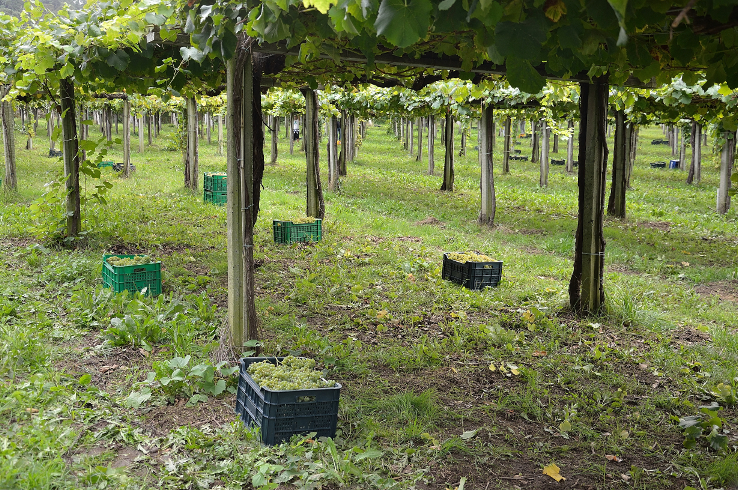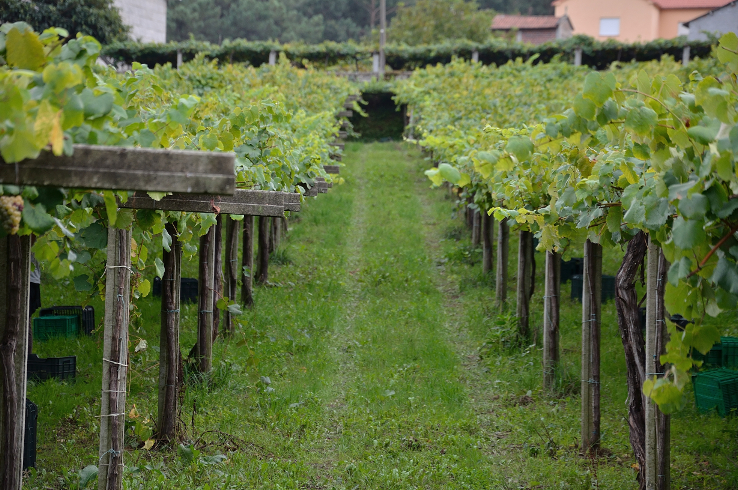2020 Viña Cartin Rías Baixas Albariño
Quintessential is the only word I can use to describe this wine. It comes from the ancestral home of Albariño, located directly on Spain’s Atlantic coast. It’s bright and refreshing… a solid weeknight staple.
Sustainable farming practices and hand-harvested.
- Tasting Notes Meyer lemon, clementine, citrus pith, honeydew, white grapefruit, marcona almond, sea salt
- Variety Albariño
- Region Spain, Rias Baixas
- Volume 750ml
- Alcohol Volume 13%
- Table Talk This wine comes from Val do Salnés, which many call the birthplace of Albariño.
$24.00
Out of stock
Viña Cartín was founded in 1977 in Spain’s Salnés Valley, the oldest of Rias Baixas’ five subregions. In 2003, Viña Cartín moved their operations to a new location—an old winery in the heart of the area—and refurbished its interior with modern technology, yet maintained the estate’s artisanal character.
Contrary to the many regional wineries who purchase fruit, Viña Cartin proudly owns and sustainably farms 50 acres of their own vines. This direct access to the source allows them to control the raw material from start to finish. The estate’s vines average 30 years in age and benefit from the influence of the nearby Atlantic ocean. The resulting wines are bright, balanced, and laden with natural acidity.
ALBARINO
A pleasantly refreshing light white wine. Most known from Rias Baixas in Spain, but additionally as Vinho Verde in Portugal. Albariño’s are generally high in acid with refreshing citrus fruit flavors and a notably saline mineral character due to the regions’ proximity to the ocean. Serve these wines well-chilled while eating fish tacos on a hot summer day, you won’t be disappointed.
GALICIA, SPAIN
Part of what can be referred to as “Green” Spain, Galicia is located in the upper north west corner of the country. Wine production here dates back to the time of the Romans. It is one of the coolest areas producing refreshingly crisp Albariño with strong mineral characteristics as well as elegant red wine from the Mencía grape. Galicia boasts five denominated wine regions (DOs) including the infamous Rías Baixas, the closest DO to the Atlantic ocean.
Related Items
-
2023 Pierre Riffault ‘7 Hommes’ Sancerre
$40.00Sancerre is the “spiritual home” of Sauvignon Blanc. It’s considered to be the purest expression of Sauvignon Blanc on the planet and a wine we love for its versatility when it comes to food. It pairs well with light green salads and Crottin de Chavignol goat cheese of course, but Sancerre comes to life alongside vibrant fish dishes like seafood thai curry.
This wine comes from 25+ year old vines that are sustainably farmed in clay-limestone and chalk soils. It’s vinified in stainless steel tanks to preserve freshness.
-
2023 Domaine Roland Lavantureux Chablis ‘Vaux Carrés’ (half-bottle)
$27.00This is Chablis as it should be: pure, mineral, and refreshingly complex. The half-bottle format makes it perfect for picnics, solo dinners, or as a crisp aperitif before a larger meal. It’s a snapshot of northern Burgundy terroir—refined deliciousness. Enjoy with sushi, sashimi, seafood pasta or goat cheese and crackers.
Organic farming practices, native yeast fermentation and less than 5,000 cases produced annually.
-
2022 Stark-Condé Jonkershoek Valley Stellenbosch Field Blend
$31.00This insanely fun wine comes from a single-vineyard that was co-planted intentionally to create this wine. It’s rich and structured, yet delicate and refined. If South African wine is not on your radar, it’s time to pop the cork and get your head in the game.
Organic farming practices, family-owned, co-fermented with native yeasts, aged on the lees for 9 months, unfined/unfiltered and only 1,000 cases produced.
-
NV Champagne Delavenne Père & Fils Brut Tradition Grand Cru
$55.00This Brut Tradition Grand Cru is the heart and soul of what the Delavenne’s do. Jean-Christophe describes this wine as the “embodiment of the Delavenne house tradition,” and we couldn’t think of a better bottle to elevate any dinner party, weeknight happy hour, or gathering amongst close friends.
Organic/biodynamic farming practices, native yeast fermentation, and less than 2,000 cases produced annually.











